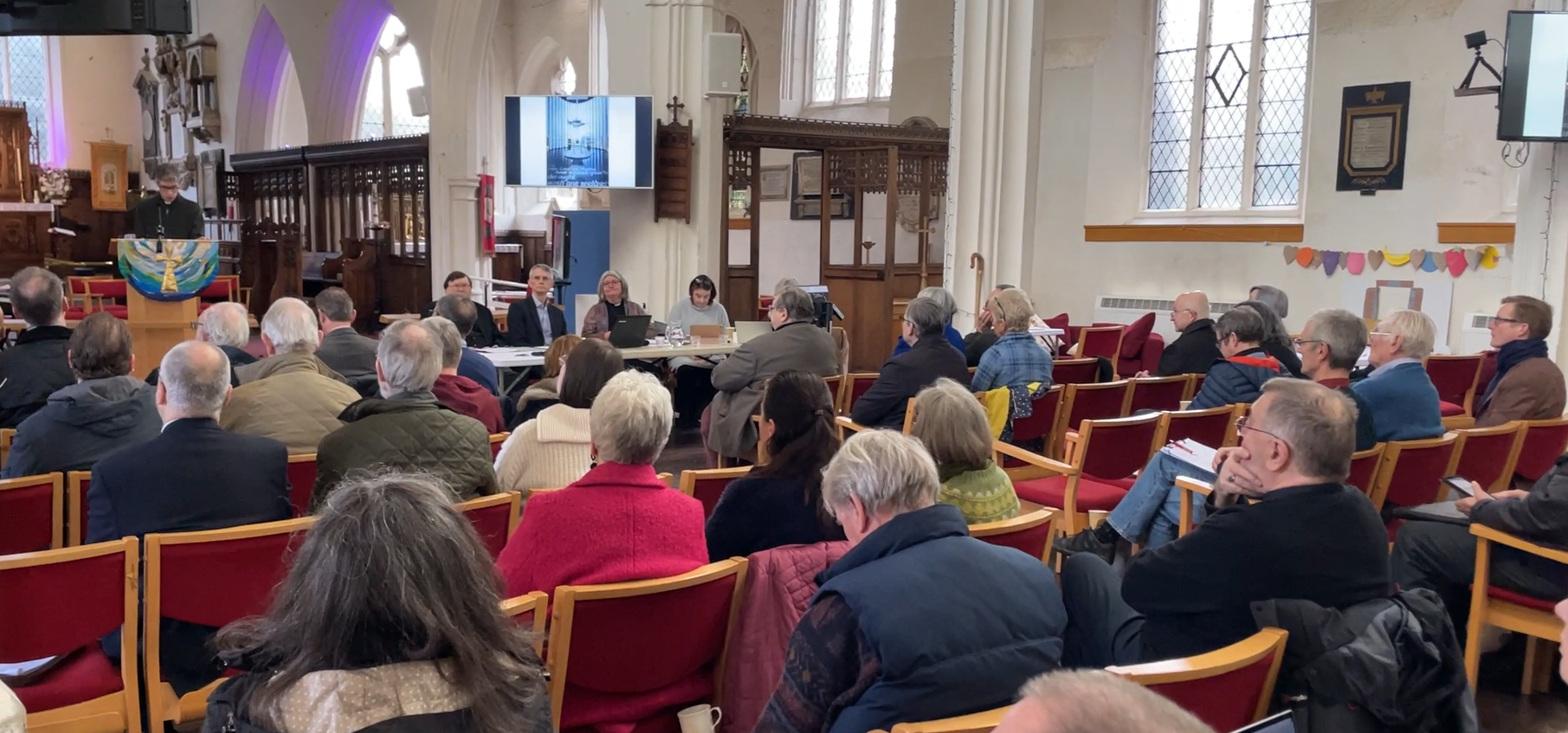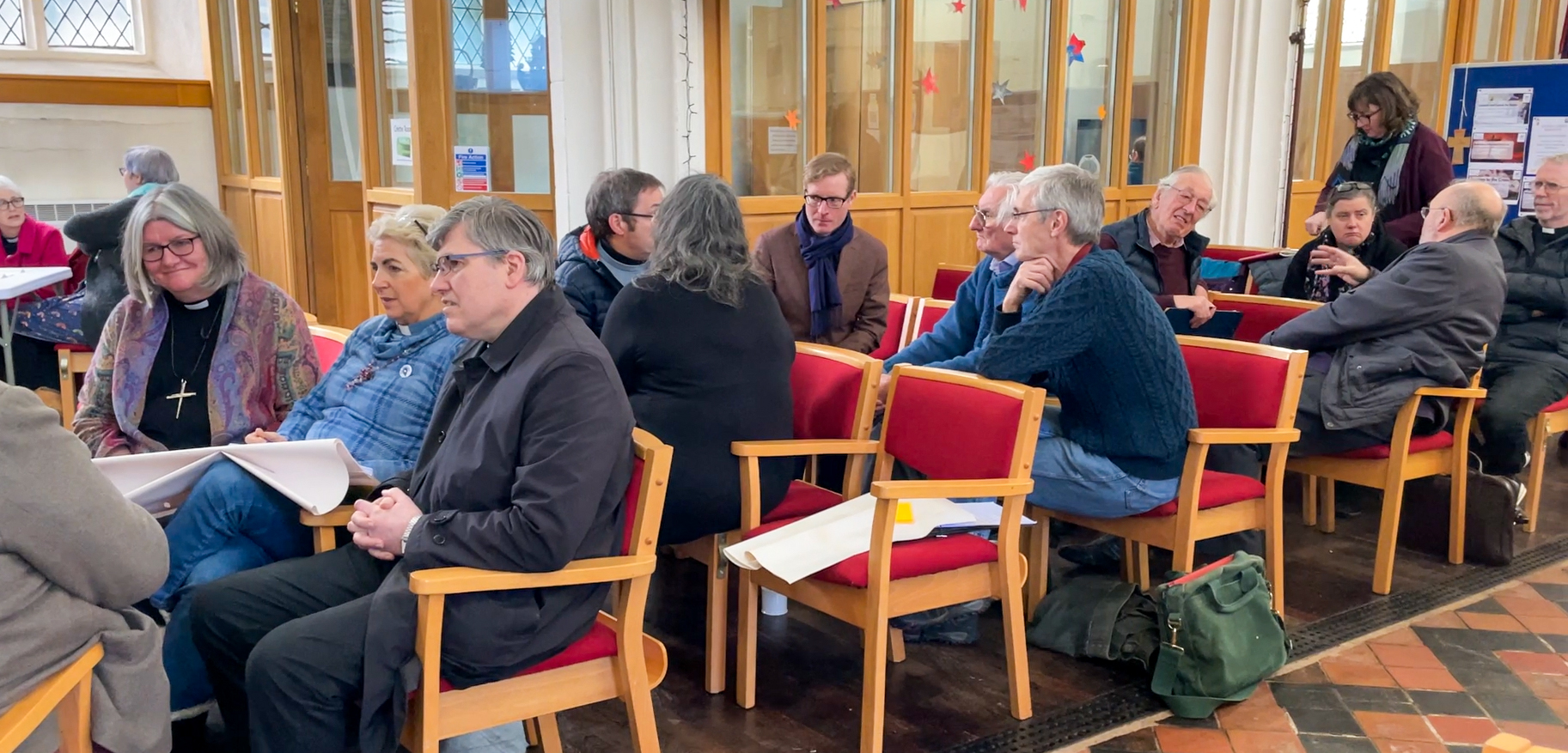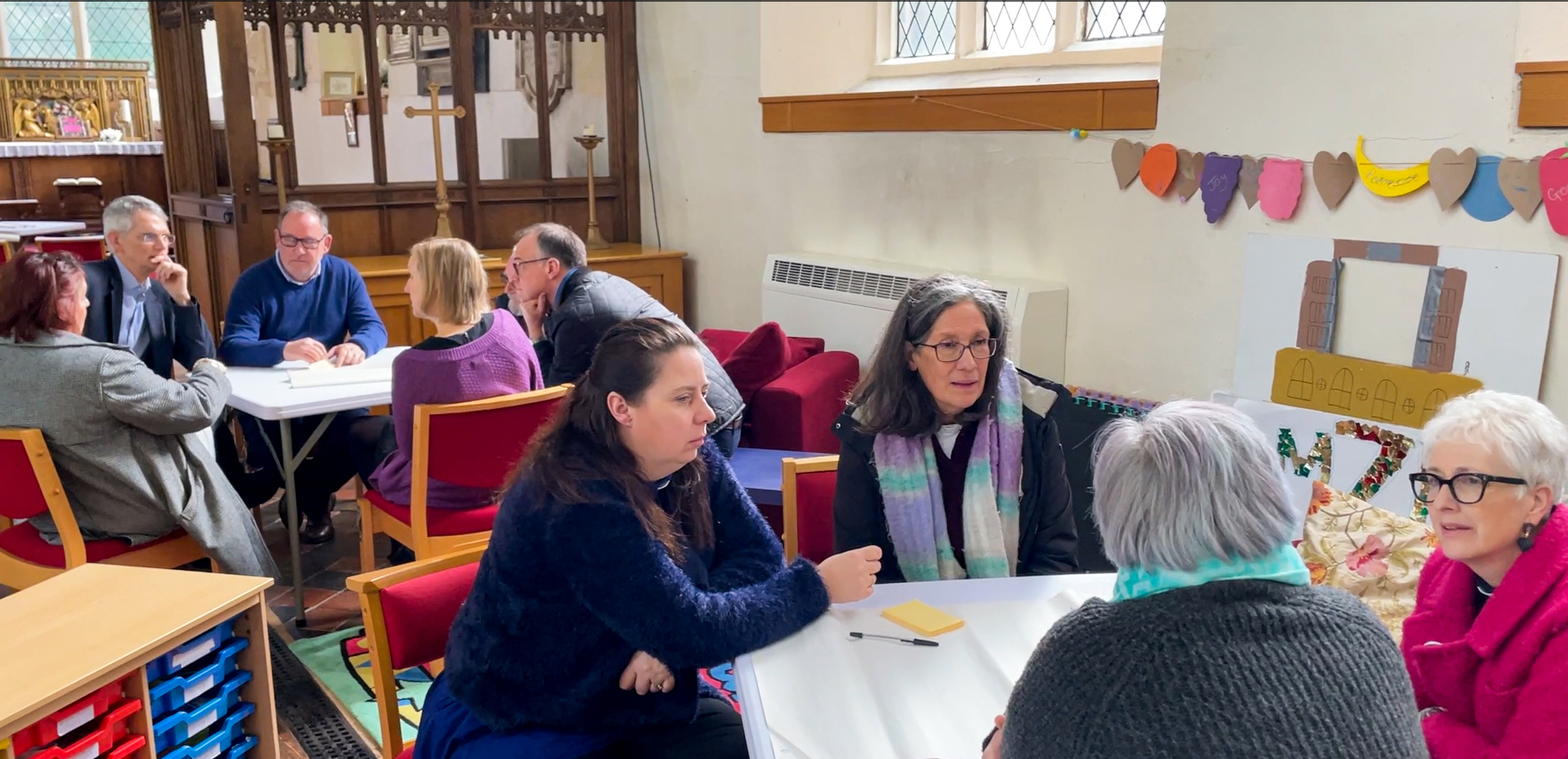What is it?
What is Diocesan Synod?
Diocesan Synod acts as the ‘parliament’ of our diocese, members are elected through Deanery Synods and represent the views of people across the diocese. Members can ask questions, bring motions and are asked to vote and approve major decisions of the diocese. Diocesan Synod is one of the four rungs of the ‘synodical ladder’ – which also includes General Synod, Deanery Synods and PCCs. The 100+ synod members perform a key function in communicating both ‘up’ and down’ the ladder, ensuring that all areas of church life work together.
Why stand?
This is an opportunity to represent the concerns of your parish and community at a diocesan level. You can input to plans, strategies and budgets that affect all parts of diocesan life. You can also raise issues and contribute to debates on social and policy matters. Membership of Diocesan Synod provides the opportunity to gain a greater understanding of Church of England process, policies and measures (laws), it also gives valuable experience of being part of a large committee and decision-making body that can be transferred to other areas of life. Volunteering has been shown to deliver many benefits, providing mental stimulation, social connections and a change of task away from home or work.
How many meetings are there, what is the time commitment?
There are three Diocesan Synod meetings per year, a Saturday morning in March, Tuesday evening in June/July and Saturday morning in November. You will need to set aside time to read the papers ahead of the meeting. These are sent electronically three weeks before each meeting.
Members are elected for a three-year term which runs from 1 August 2024 to 31 July 2027.
Where are the meetings held?
Meetings are held at churches and schools across the diocese. Wherever possible, venues are booked that can be accessed via public transport. Lift sharing is always encouraged. Members can claim back the costs of their travel.
How does this relate to Bishop’s Council?
Bishop’s Council is the Standing Committee for Diocesan Synod, the Diocesan Mission and Pastoral Committee, and also the Trustees and Directors of the Diocesan Board of Finance. Bishop’s Council is responsible for considering matters of strategy and policy, advising the Bishop, recommending budgets and expenditure and determining how matters may be taken forward to Diocesan Synod. Bishop’s Council members are elected by and from Diocesan Synod. Elections to Bishop’s Council will take place over the summer, once the newly elected Diocesan Synod are in place.

Who is it?
Who is part of Diocesan Synod?
There are three houses:
- The House of Bishops – the Bishop of Coventry (the President of Synod) and the Bishop of Warwick)
- The House of Clergy – elected from each deanery
- The House of Laity – elected from each deanery
- There are also ex-officio members: the Dean of Coventry, the Archdeacons, general synod members, the chancellor of the diocese, the chair of the Diocesan Board of Finance (DBF), the Chair of the Diocesan Board of Education (DBE) and the Chair of the Diocesan Advisory Committee (DAC). The Bishop of Coventry can also nominate members.
- Key members of staff from the Diocesan Board of Finance are in attendance to facilitate the meeting as well as the Diocesan Secretary and CEO and the Diocesan Registrar.
Who is eligible to stand for election?
For the House of Laity: you must be a lay person who is an actual communicant member of the Church of England of 16 years or upwards, whose name is entered on the Church Electoral Roll of any parish in a deanery within Coventry diocese. You do not need to be a member of deanery synod.
For the House of Clergy: you must be a licensed clerk in Holy Orders who is a member of the Deanery Synod or who is working or residing in the deanery.
Do I need any particular experience or qualifications?
No, if you are eligible for nomination we would love to have you! You do not need to have experience of being on a PCC or deanery synod. We encourage members from all walks of life, age, and backgrounds and are keen to see a Diocesan Synod that more fully represents the communities we serve. Enthusiasm and a willingness to use your gifts to serve others is what’s needed.
Do I need to be on Deanery Synod?
No, lay candidates do not need to be members of deanery synod. Anyone elected to diocesan synod will become ex officio members of their deanery synod and PCC.

Still interested?
How do I get nominated?
Each nominee must be proposed and seconded by members of the current Deanery Synod of the relevant House: lay candidates must be proposed by lay deanery synod members, and clergy candidates by clergy deanery synod members. The proposer and seconder must be from the same deanery as the nominee. The forms can be completed electronically. If you are unsure who your local deanery synod representatives are please contact elections@coventry.anglican.org and we can point you in the right direction.
When do I need to be nominated by?
The first round of nominations closed on 25 June. For those deaneries that still have spaces, a second round of nominations will run from 26 June to 17 July. Nominations forms can be downloaded and have been sent to all those who can nominate (ie. deanery synod members). Round two completed nomination forms should be returned to elections@coventry.anglican.org by midday on 17 July.
How do I find out the result?
- If the number of nominations does not exceed the number of seats for a deanery then the nominated candidates are elected unopposed.
- If the number of nominations exceeds the number of seats a vote will be held.
- Confirmation will be sent to all candidates and deanery synod secretaries, either at the end of the nomination period or, if a vote is required, at the end of the vote period.
If successful, when do I start?
Members are elected for a three-year term which runs from 1 August 2024 to 31 July 2027.

Other questions
What happens in a Diocesan Synod meeting?
Meetings begin with worship and prayer led by the Diocesan Synod chaplains, followed by an address from the Bishop of Coventry. There are presentations and updates on activities within the diocese, General Synod feedback, items for discussion and items to approve such as the annual Diocesan Board of Finance budget.
How long do the meetings last?
Hot drinks and biscuits are available 30 minutes before the start of the meeting, providing time to meet and socialise with other members. The meetings usually last around 3 to 3 1/3 hours with a comfort break for more drinks and biscuits. All the venues have toilets.
Who is in charge?
The Bishop of Coventry is the President of Diocesan Synod. The President chairs the meeting along with the Vice-Presidents, the Chair of the House of Clergy and Chair of the House of Laity.
Do I need to come to every meeting?
Attendance is not compulsory but commitment is appreciated. The meetings must be quorate to enable decisions to be made – this is the minimum number of attendees needed to conduct business. Numbers also affect planning so please do put apologies in as soon as you can if you are unable to attend.